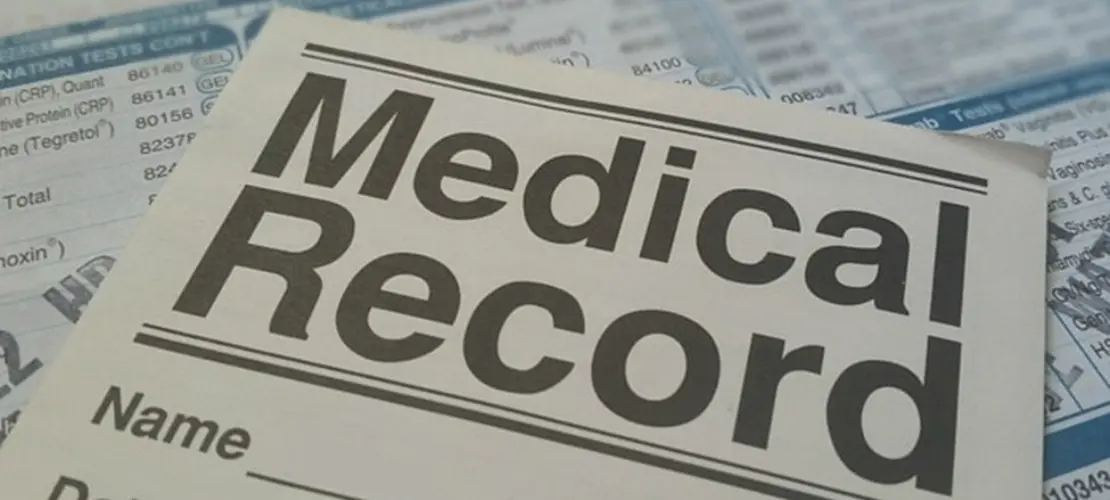Trusted Resources on Seeking Addiction Treatment in the Armed Forces

Will the military know if I went to rehab? The short answer is: most often, yes, the military will have access to your rehab records as part of your medical history, which you must disclose when enlisting or if you are already serving.
However, the military knowing about rehab attendance can be a positive if support is sought proactively rather than following a public incident of intoxication or criminal encounter, like a DUI.
Our latest article from TriCareRehabs.com will explore what the military does with this information, how it could affect your career, and what privacy protections exist for your medical records. Remember that we are also available by phone at any time to offer completely confidential support and in-network TRICARE rehab support options.
Key Takeaways for Quick Answers
- Honesty about substance abuse history can positively influence military recruitment and career prospects, and medical waivers are possible despite a history of rehab.
- HIPAA protects your rehab records, ensuring they remain confidential and are not disclosed to military personnel without your consent.
- TRICARE offers comprehensive treatment options for military personnel, including detox, outpatient, inpatient, and medication-assisted treatment to support recovery from substance abuse.
- com offers support for our Armed Forces and veterans by providing in-network TRICARE treatment options.
The Disclosure of Medical Records in the Military
Transparency, particularly in medical records, is a fundamental requirement in military service. The question of how rehab fits into this equation might arise if you’re contemplating joining the military or if you’re already serving.
The military requires applicants to provide their complete medical history, including any past substance abuse and alcohol or drug rehab treatment. Such detailed disclosure allows recruiters and medical staff to grasp a complete understanding of your health.
What happens, though, if you have a history of substance abuse? A history of drug or alcohol addiction can be grounds for disqualification. However, there’s a silver lining: the recruiter evaluates each case individually, and a medical waiver may be possible.
Honesty about your history of substance use treatment can actually increase your chances of being accepted. Being upfront demonstrates integrity and a commitment to personal growth, qualities highly valued in military culture.
For active duty personnel, attending rehab while serving can also be a concern. Given the demanding nature of military life, the prospect of revealing a rehab stint could appear daunting. But remember, honesty is the best policy. A truthful disclosure of your medical history, inclusive of rehab, can pave the way for favorable outcomes and potential waivers, offering you a fresh start in your military career.
What are the Privacy Protections for Rehab Records?
Worried about your rehab records being exposed? Thanks to HIPAA, you can breathe a sigh of relief. HIPAA’s Privacy Rule ensures that protected health information (PHI) is properly safeguarded while still allowing the necessary flow of health information. This implies that HIPAA treats your rehab records as private medical data, thereby protecting them.
Under HIPAA, you have control over who gets to see your protected health information. Drug and alcohol rehab records do not fall under exceptions that allow disclosing information without permission. Such assurance is significant for those concerned about their privacy after attending rehab.
While military medical staff can access health records, they cannot disseminate this information to commanding officers or recruiters without your initial consent. This means that while your rehab history is part of your medical records, it remains confidential unless you choose to disclose it. If privacy is your concern, you can be assured that your rehab records are securely protected.
The Impact of Rehab on Military Career Prospects
How does going to rehab affect your military career prospects? The answer to this question may not be as clear-cut as you may perceive. Receiving treatment for drug addiction itself isn’t a barrier to military service, but a history of drug use can be. The military tends to be more tolerant towards substances such as alcohol or marijuana, but adopts a stricter approach towards drugs like heroin and cocaine.
For those who’ve successfully completed rehab and no longer rely on substances, the chances of enlisting can improve significantly. The military makes a decision on a case-by-case basis on whether prior drug use poses a barrier to service. Demonstrating recovery and commitment to personal growth can showcase your dedication to overcoming challenges, which is highly valued in the military.
It’s also important to note that attending rehab may not lead to discrimination based on past substance abuse or rehab. Substance abuse during active duty is currently a concern and needs to be addressed. If you’re on active duty and need support for recovery, TriCareRehabs.com can assist with locating in-network TRICARE providers.
Does Rehab Appear on Your Criminal Record?
One common concern is whether attending rehab will appear on your criminal record. The good news is that participating in a drug or alcohol rehab program does not appear on a criminal record and is not a crime in any sense of the word. However, substance abuse-related criminal behavior can be discovered by the military since criminal records do not have the same privacy protections as health records, even if someone goes to rehab.
It’s crucial to seek treatment before substance abuse leads to criminal behavior, such as a DUI or other offenses. Rehab information might be disclosed to law enforcement during a criminal investigation or due to a court order, though both would require a subpoena and a Judge’s order. Proactively seeking treatment can help keep your criminal record clean and demonstrate responsibility.
So, if you’re concerned about how rehab might impact your criminal record, remember that the act of seeking treatment itself is not something that will appear. Instead, it’s a proactive step that can help you avoid potential legal issues down the line.
The Stats on Substance Use Disorders Among Active-Duty Personnel
Regrettably, substance use disorders are common among active-duty military personnel. Factors such as the pressures of military service, trauma, and exposure to combat, coupled with the stress and demands of military life, can give rise to substance abuse issues. The recognition and addressing of substance abuse is vital for the maintenance of both personal health and military readiness.
Statistics from a study in 2015 show that:
- 30% of active-duty service members were binge drinkers
- Alcohol is widely available and discounted on military bases
- Around 4% of active-duty personnel report misuse of one or more prescription medications
- Rates of illicit drug use are low, with less than 1% reporting engagement
These numbers highlight the importance of understanding and addressing substance use disorders within the military.
The Culture of Alcohol Misuse in the Military
Alcohol misuse, which can also be referred to as alcohol abuse, is a significant issue within the military. Almost one-third of active duty military personnel indulge in binge drinking, which may lead to a probable alcohol use disorder.
In the Marine Corps, nearly half of the service members engage in disordered or hazardous drinking. Military culture often includes social drinking rituals that can lead to alcohol misuse over time.
TRICARE expanded its treatment offerings in 2016 to include intensive outpatient (IOP) care in response to high rates of unhealthy drinking in the military. This step was taken to tackle the escalating issue and offer increased support for service members.
TriCareRehabs.com can provide resources for detox, residential inpatient care, and IOP services. These treatment options are designed to address the unique challenges faced by military personnel.
Understanding the culture of alcohol misuse in the military is the first step in addressing it. By recognizing the problem, military members can seek the help they need and take advantage of the resources available through TRICARE and other support networks.
Prescription Drug Misuse in the Military
The misuse of prescription drugs also constitutes a critical issue within the military. Prescription pain relievers are the most commonly abused prescription medications in military populations. This poses significant concerns for the health and well-being of service members. These opioids are frequently misused for managing pain stemming from injuries incurred during service.
From 2001 to 2009, the number of painkiller prescriptions written by military doctors quadrupled. This alarming trend highlights the need for effective medication-assisted treatment (MAT) options following detox. Some top in-network TRICARE rehab providers, such as South Shores Recovery, that offer these comprehensive treatment plans include:
Addressing prescription drug misuse, drug abuse, and drug and alcohol misuse requires a multi-faceted approach, including proper pain management, education on the risks of misuse, and access to effective treatment options.
Military personnel struggling with prescription drug misuse can find the support they need through TRICARE and TriCareRehabs.com, which also provides information on drug tests.
The Available Treatment Options for Military Members
TRICARE provides a broad spectrum of substance abuse treatment options, facilitating easier access to necessary care for military personnel.
Some of the treatment options covered by TRICARE include:
- Detoxification
- Inpatient treatment
- Outpatient treatment
- Medication-assisted treatment
- Intensive outpatient programs
- Partial hospitalization programs
These options help military personnel with the financial aspects of their care.
Reputable treatment centers for military members offer tailored programs for service members, including inpatient and residential services as well as support for veterans with specialized, trauma-informed care. These programs are designed to address the unique challenges faced by military personnel, ensuring they receive the best possible care.
Seeking Help for Addiction and Mental Health in the Military is the Responsible Choice
For military personnel, seeking help for substance abuse is a responsible and praiseworthy step. Being honest and upfront while seeking help is the best approach for those struggling with substance abuse. Proactively addressing of substance abuse signifies a commitment to personal and professional responsibilities.
Seeking help is considered a courageous act as it demonstrates a commitment to oneself, family, and duty. Confidential resources like TriCareRehabs.com are available to provide advice and support, ensuring that military personnel can access the help they need without fear of stigma or repercussions.
The act of seeking help is a potent display of responsibility and courage. It shows a commitment to personal growth and a dedication to fulfilling one’s duties both in personal life and in military service.
How to Begin Getting Support with TriCareRehabs.com
Initiating rehab with TriCareRehabs.com involves a straightforward procedure. The first step involves verifying your insurance coverage through a confidential phone call. This ensures that you understand the costs and coverage available to you before beginning treatment.
TriCareRehabs.com is a leading provider of in-network TRICARE treatment options for mental health, addiction, and dual diagnosis clients. By accessing these resources, military personnel can find the support they need to begin their recovery journey.
With TriCareRehabs.com, you can access a range of treatment options tailored to your needs. From detoxification to inpatient and outpatient care, the support you need is just a phone call away.
Reach Out Proactively for Trusted Programs and Support Today
Throughout this blog post, we’ve explored the various aspects of going to rehab as a military member. From the importance of disclosing your complete medical history to the privacy protections in place under HIPAA, we’ve covered the key points you need to know.
We’ve also discussed the impact of rehab on military career prospects, the culture of substance misuse in the military, and the available treatment options through TRICARE.
Seeking help for substance abuse is a courageous and responsible decision. By taking this step, you’re not only committing to personal growth but also demonstrating your dedication to fulfilling your professional responsibilities.
Remember, TriCareRehabs.com is here to support you with confidential resources and a range of treatment options. Take a huge stride toward recovery and call us now!
FAQs on Attending Addiction Treatment in the Armed Forces
Will the military know if I went to rehab?
Yes, the military will know if you went to rehab as they require a complete medical history, including past substance abuse and rehab treatments.
Are my rehab records private?
Yes, your rehab records are private under HIPAA and cannot be disclosed without your permission.
Does attending rehab appear on my criminal record?
No, attending a rehab program does not appear on your criminal record. However, substance abuse-related criminal behavior can still be discovered through other means.
What treatment options are available for military members?
TRICARE provides coverage for a variety of substance abuse treatment options for military members, including detoxification, outpatient treatment, inpatient rehabilitation, and aftercare services. TriCareRehabs.com offers in-network TRICARE support options!
- Is There a National Guard Substance Abuse Program? - December 29, 2025
- Marine Corps Substance Abuse Program Guidance - December 8, 2025
- Does Spice Show Up on a Military Drug Test? - December 2, 2025




